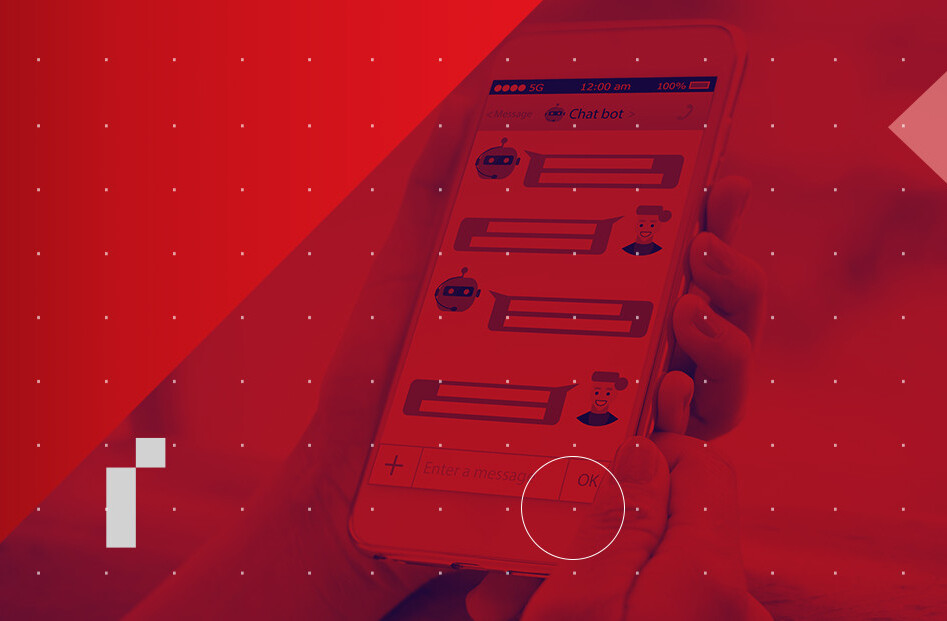
You never thought juggling—a term typically reserved for circus clowns or the party trick you tried to learn in college—would be something you practice daily. Yet, as an entrepreneur, juggling is something you have to constantly practice in order for all balls, bowling pins, and rubber chickens (so to speak) of different sizes to not drop around you.
Running your own business means driving your vision forward and all those daily to-dos are essential, but stressful and can be major time sucks. Important startup operational tasks, like fielding customer inquiries over social media, can quickly lead you down the rabbit hole of lost time online. You may be a boss, but that doesn’t mean you’re a robot! You can get pulled into newsfeed scrolling or the group chat just as easily as the next person.
Technology, in general, serves as the double edge sword—it can facilitate distractions and procrastination, but it can also be a powerful tool in helping you prioritize all those daily tasks and how you spend your time. Ultimately you want to find yourself in that sweet spot of productivity—the intersection of being both efficient and effective. To help get there, check out these 12 innovative apps that can help boost productivity, increase focus, and foster better time management practices.
1. RescueTime
You’re used to product or customer service reports providing you insight on how to optimize your operations, so why not get a regular report on how you spend your time online to optimize yourself? Knowledge is power when it comes to time management which is why a tool like RescueTime can seriously help you put your distracting/procrastination habits to rest once and for all.
RescueTime is a free tool that runs in the background of your mobile and computer, and keeps track to variables like overall time spent on different apps and websites, categories of use (such as perusing news sites, using social media, sending emails, communicating over Slack, etc.), and tracks overall productivity. For instance, you know you check Instagram a lot, but who knew that it ends up costing you 45 minutes on average a day? That adds up to some serious time over the course of a week.
RescueTime encourages users to set attainable goals to help you prioritize what actually needs to get done, such as spending 30 fewer minutes a day on email. If you really want to kick that YouTube habit you can set an alarm that informs you when you’ve spent more than a certain amount of time on the site.
If one more dashboard sounds like the last thing you want added to your bookmarks, simply open the weekly email report that summarizes your usage for the week and goal progress. What about the daily activities that are offline, like meetings or phone calls? The premium model ($9/month or $72/annual) offers that plus a few other features not available on the free model like unlimited report history.
2. Focus
You know how it goes. You’re finishing up a presentation for the meeting tomorrow, but then the urge to check Twitter or scroll through Reddit hits. You tell yourself a five-minute break would do you some good, but then an hour later the presentation is still half-finished while you’re deep into cat videos.
Focus is a fairly simple yet effective Mac menu bar app that invites you to block distracting websites and apps. It also has some extra elements like motivational quotes that pop up when trying to access one of the blocked sites. The tool is entirely customizable so you can use the timer like normal, set the timer as a pomodoro timer for short segments of focus time, or schedule longer blocks a part of a daily schedule.
If you really want to get down to business, choose “hardcore mode” so preferences will lock and you cannot be tempted to disable. Give it a free go for two weeks, then a single license for one Mac will cost you $19.99.
3. Calm
Being able to quiet your mind, focus your attention, and breath consciously can foster a Zen attitude and environment that allows you to tackle tasks without the chaos of your mind running a million different miles a minute. That’s why an app like Calm may seem outside the realm of your business, but can actually improve cognition, memory, and attention. Guided meditation activities on the app range from three to 25 minutes, or you can try out different breathing exercises and the 10 minute “Daily Calm” program. The free app is available for iPhone and Android.
4. Toggl
If any part of your business involves tracking your billable time for clients, you need to ditch the old school spreadsheet (of which you then spend time converting into an attractive invoice) for an easier tool. Toggl is an easy to use time tracker that also allows you to track progress on projects. You can toggle (get the name?) it on when working on a project and if you forget you can add it in later. One of the app’s unique benefits is the “big picture” it present illustrating how profitable (or not) each of your clients and projects are. The basic plan is free and then there are three premium levels starting at $9/month.
TimesUpp
When you’re taking meetings and running errands all over a city you try to estimate how much time it will take you to get there. Most of us do this naturally, but can wildly miscalculate if traffic is stuck or there’s construction blocking the quickest path.
TimesUpp acts as a sort of personal travel assistant to help you get from the client meeting to picking up the dog from the groomer without the guesswork. The app utilizes your mobile calendar of choice and boosts it by telling you exactly how much time it will take to get there regardless if you’re traveling on foot, bicycle, public bus/train, or by automobile. It checks traffic for you and automatically sends you travel alerts telling you when you need to leave to make it to your destination on time.
TimesUpp integrates with travel apps that you likely already have on your smartphone like Google Maps and Waze, as well as your TomTom device. One of the biggest benefits of the app is you can view your entire itinerary (with travel times) up to two months in the future, so you can schedule accordingly. If time management, being perpetually late, or wasting time surveying maps is one of your productivity vices, this app is essential.
6. MobileDay
It seems that every business/vendor/client seems to use a different conference call platform, each with their own software, unique number, and pin. Plus, dialing into a conference call from a cell phone makes an annoying part of conducting business outside of a physical office that much more difficult.
MobileDay promises one-touch dialing into all conference calls. Allow the app access to your mobile calendar and so long as you have the conference call number and passcode a part of the calendar event MobileDay takes care of the rest. It even validates the call info in advance of the meeting and sends you helpful reminders.
It works regardless if you’re the host or just a participant on the conference call. If connectivity drops on your cell phone the app makes it easy to reconnect again with just one click. There are a free version and a business version with added features for $14/month (billed annually).
7. HelloSign
Anyone who has ever had to deal with electronically signing a PDF knows that a task that seems like it should be simple is inevitably difficult. HelloSign makes handling agreements or contracts easy without having to do the whole print, sign, scan (usually multiple times), and email/fax shtick. The app allows you and your clients to easily (and legally!) sign any PDF with an experience optimized for mobile, so there are minimal time delays.
HelloSign also has customization features, like adding business branding and unique signature requests. Plus, you can feel good about the platform’s security features including user authentication, permission controls, and data privacy protection. Pricing ranges from free (one user) to $40 (one to five senders)
8. Calroo
If you’re an entrepreneur and you have all of these tools to help with your business operations and optimization, that’s great, but what about your personal life? Business owners with a busy family can also look to apps that help reduce stress and increase organization within the family unit. Because let’s be honest, if you have a couple kids in multiple activities and a partner who also works full-time, sometimes it feels like running your family is more work than running your organization.
Calroo is the calendar app (with in-app messaging and a clean user experience) that you needed and wanted yesterday. It’s dedicated to helping you easily delegate family duties between parents (and older children if applicable) like chores, grocery shopping, and taking the dog to the vet. Currently, the iOS app is free and the Android beta version will be available soon.
9. Xpenditure
When you run your own business you should keep track of certain receipts for tax purposes – which can get messy and unorganized fast. Belgian company Xpenditure developed a cloud-based platform that overhauls the tedious expense reporting process, makes it paperless, and accessible in real time.
This means spending unnecessary hours sorting through your box of crumpled up papers, every time you need to file taxes, will no longer be necessary. One-click scanning of receipts via the free mobile app pulls all the relevant data, but also allows the user to specify a category or specific project tag.
Integrations with mainstay online accounting programs (like Freshbooks, Sage One, Exact Online, and QuickBooks to name a few) mean you don’t have to reinvent the business’ accounting wheel, you just get to eliminate one of the most painful aspects of it.
Take advantage of Xpenditure’s data insights to better determine spending trends and shape accounting policies. To that end, your company’s accountant can also set alerts for when submitted expenses fall outside of the scope of covered expenses. Xpenditure pricing starts for the individual at €4.27/month; up to 50 users is €5.83/month.
10. Papier
You don’t get into the business of running your own business without good ideas. Papier thought that since the average person has about 60,000 thoughts a day, but also spends about seven hours of the average day looking at screens those two should converge. How many times do you have a great idea, assure yourself you’ll write it down, but then end up forgetting completely? Or, when you do write it down, the paper ends up getting lost in the shuffle.
Papier is a super simple Google Chrome extension, so when you open a new tab it replaces the default screen with a clean interactive notebook. No accounts or login needed. The notebook saves and syncs automatically, so no need to worry closing out the browser. This tool’s use is open to interpretation but most likely great for those random idea sparks, links, or anything else that comes to mind.
11. WieBetaaltWat
Startups in the pre-investment stages can rack up expenses amongst founders. If you’re bankrolling the venture yourselves it will be important that the cost share is equitable if you’re to move forward as a strong team. The last thing you want is someone to be resentful of the upstart if they’re paying more for operations, business building, and prototype creation than other equitable founders. Yet, you also don’t want precious time sorting through business expense receipts, costs, and figuring out who owes who how much.
WieBetaaItWat (AKA WhoPaysWhat) is the Amsterdam-based solution of “going Dutch” with its main functionality featuring a list to which colleagues can be invited and add their expenses. Once you choose to “settle” the list, the app inherently minimizes the quantity of mutual settlements and emails each member an overview of who owes what to whom.
It allows for adjustments such as if someone is covering a second person’s costs as well. This tool, available for Apple and Android products, could also come in handy when splitting the cost of stocking the workspace mini fridge or provisions to celebrate wins.
12. TextExpander
Whether it’s replying to emails, communicating with customers/clients, or writing content for the company blog you’re definitely writing in at least some aspect of your job. TextExpander is a nifty tool that auto-expands pre-determined text from a short text trigger. So, a few keystrokes can allow you to insert text “snippets” from a repository you build (over time) from emails, boilerplate copy, and general customer service responses and the like.
One of the fun aspects of the cross-platform tool is it keeps track of how many snippets it’s expanded for your, how many characters it’s saved you from having to type, and how many hours you’ve gained at an average WPM rate by using the app.
For working teams, snippets can be shared easily with employees so everyone is “on message.” Think of this app like how Google search automatically suggests searches from the first part of a phrase you type…except smarter and personalized to your business.
TextExpander advertises the average user saves an hour per week using the tool, which can add up pretty fast when your time is literally worth money. Pricing for the individual version is $3.33/month (billed annually) and $7.96/user/month for the team version (billed annually).
Get the TNW newsletter
Get the most important tech news in your inbox each week.




